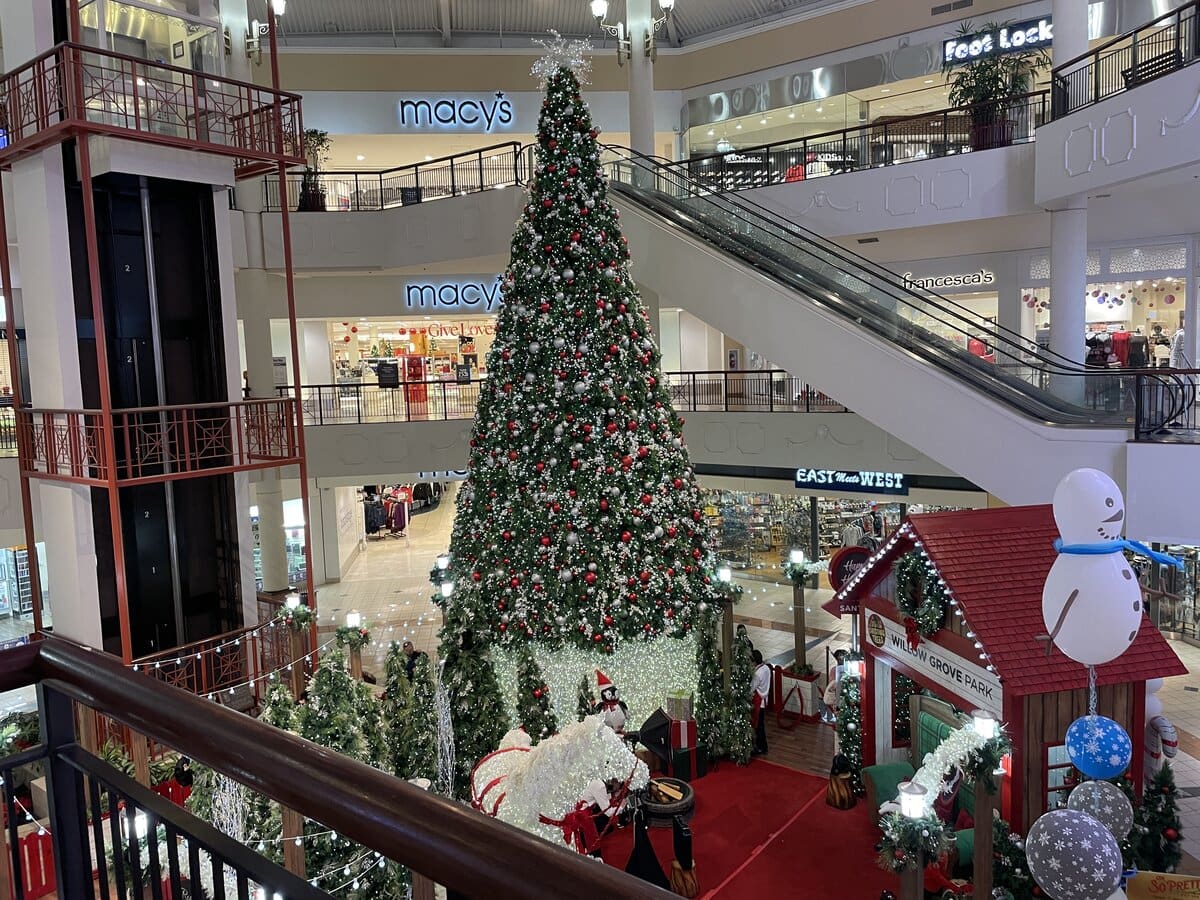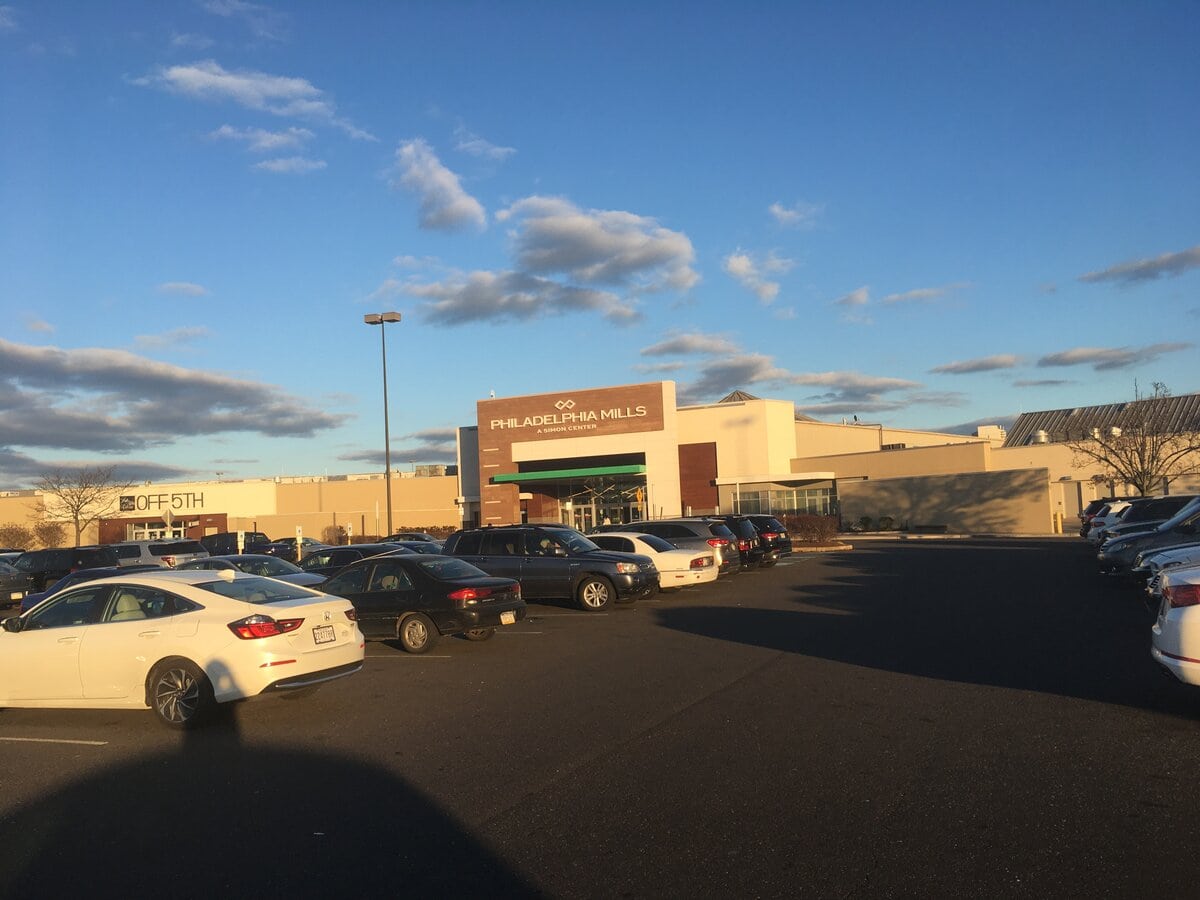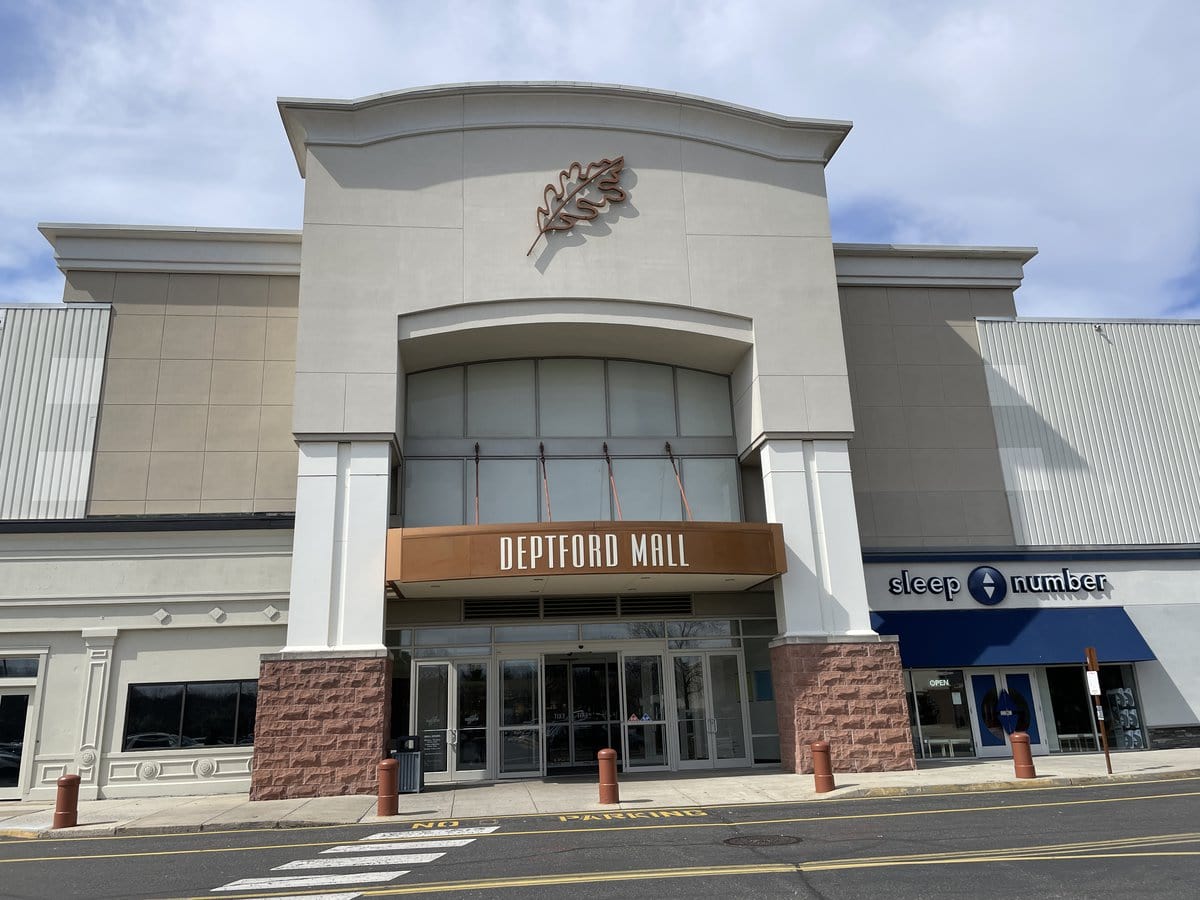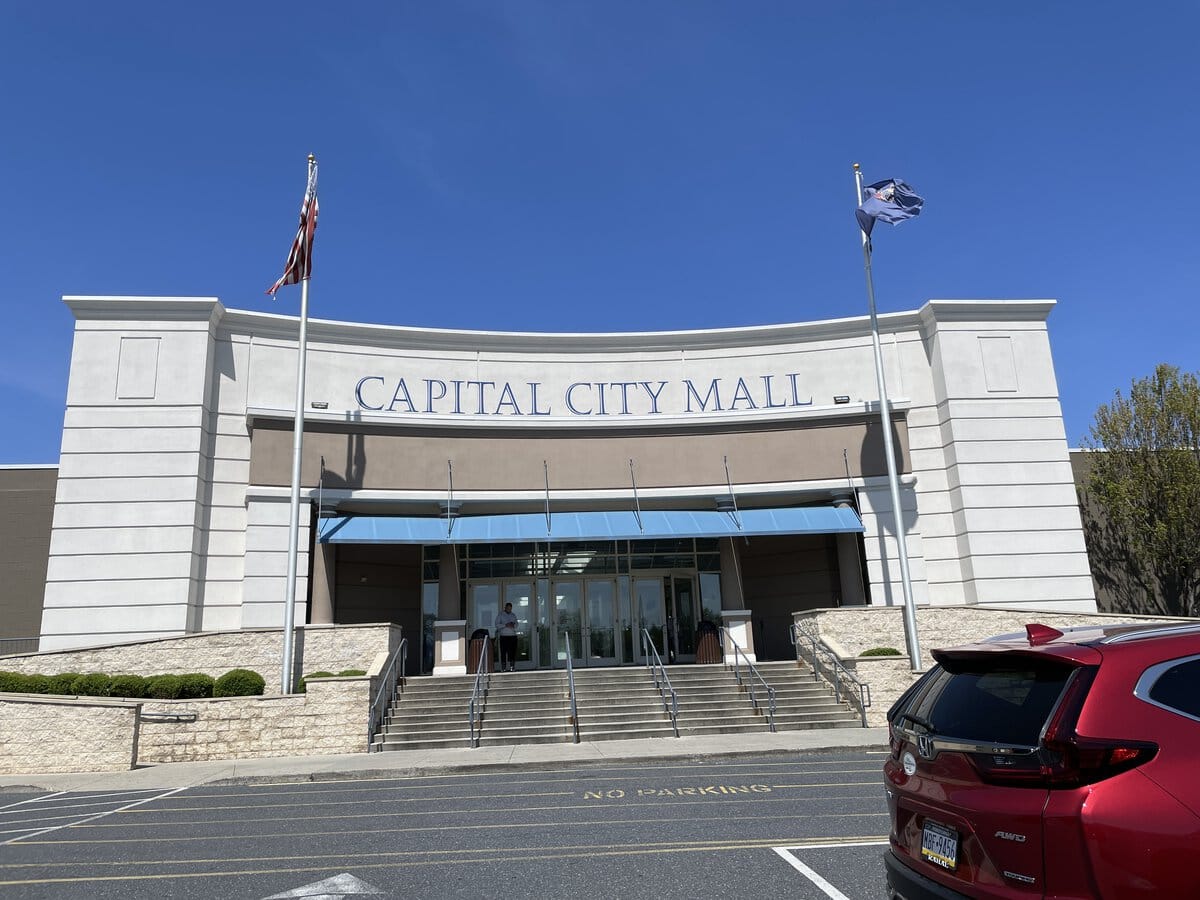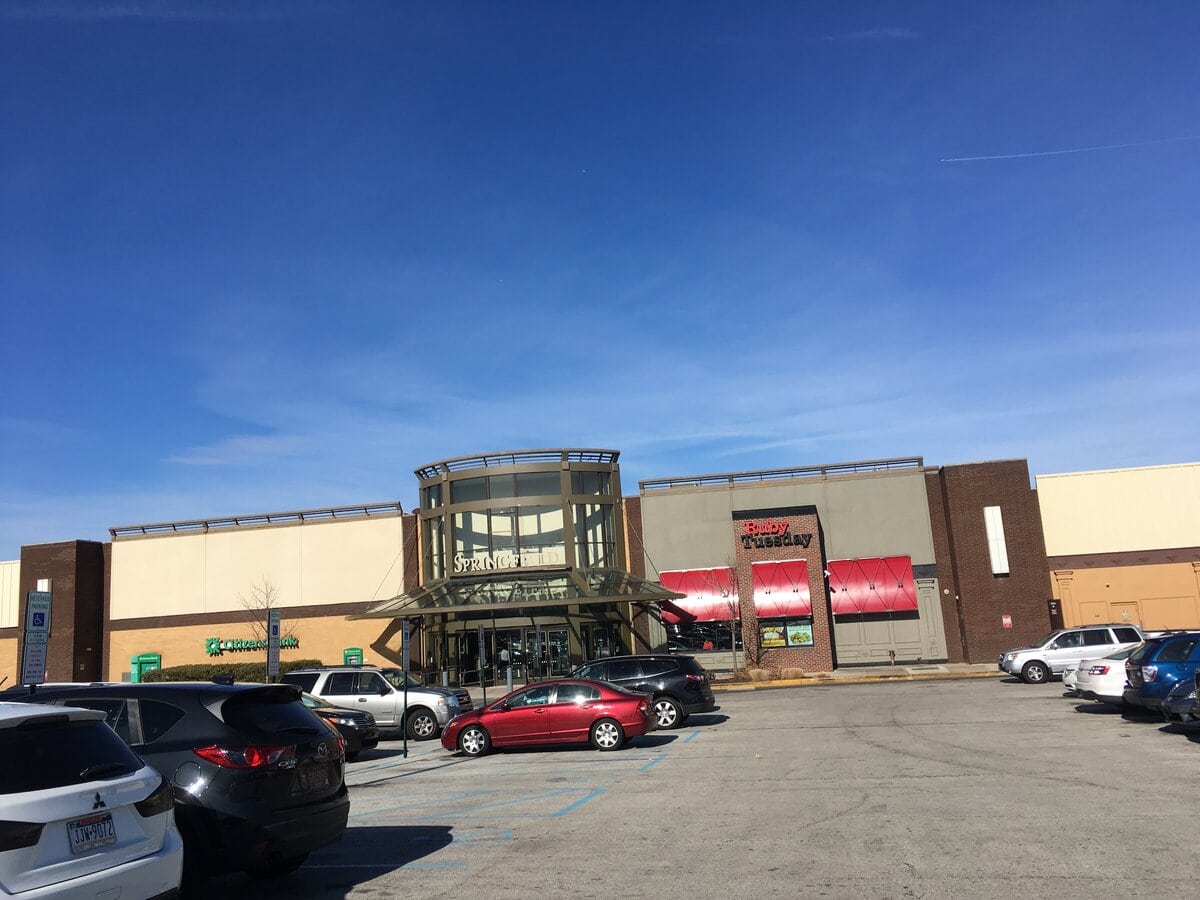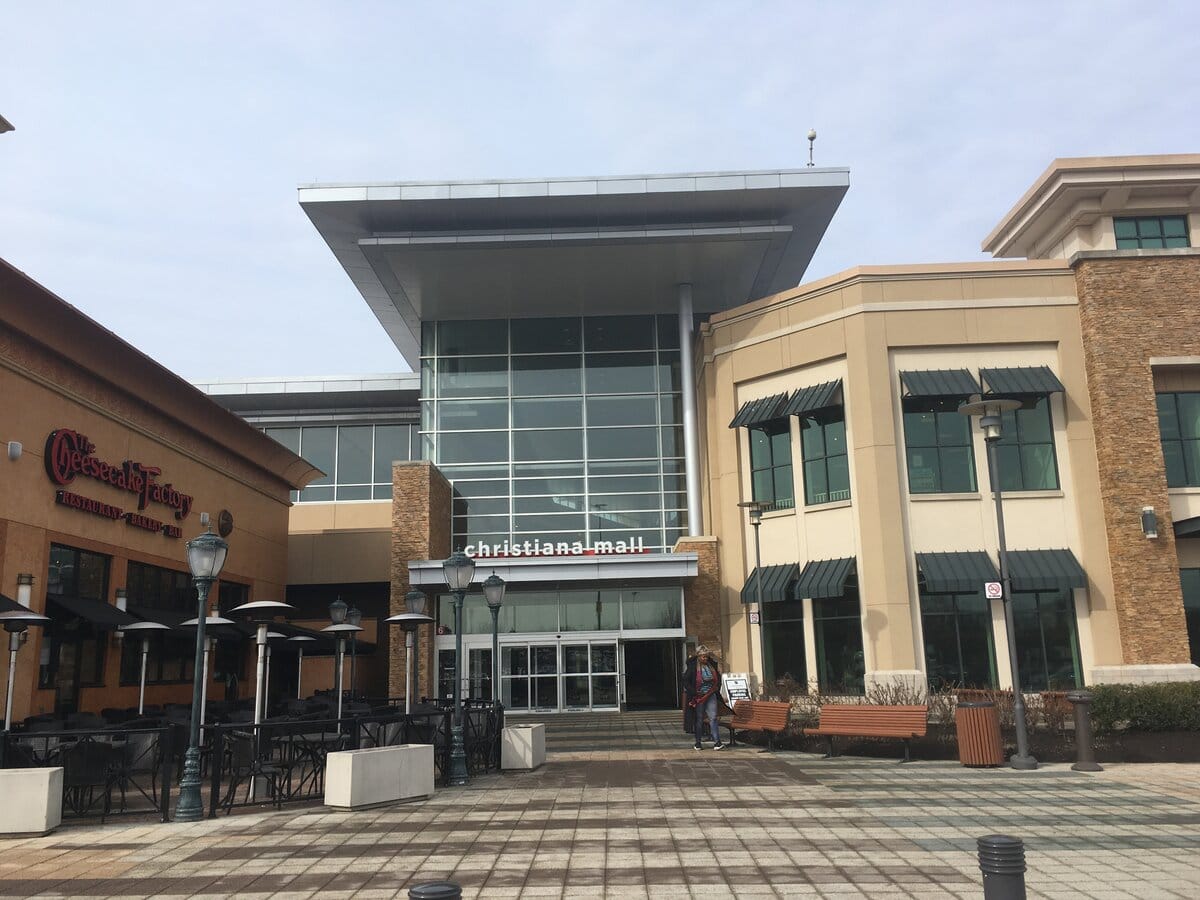Springfield Mall was planned and opened
By early 1974, construction crews were shaping concrete shells along Baltimore Pike for a new regional mall in Springfield.
The enclosed center rose near PA Route 320, surrounded by new surface roads and large parking lots designed for steady traffic.
Developers promised a climate-controlled retail space with direct access by SEPTA buses and the trolley line nearby.
Springfield Mall opened on September 19, 1974, with two department stores already drawing crowds.
Bamberger's and John Wanamaker opened their doors under shared fluorescent light, anchoring opposite ends of a single concourse lined with smaller tenants.
The mall's 589,000 square feet included modern fixtures, tiled floors, and bright skylights that reflected a retail model taking hold across Pennsylvania.
Visitors came from surrounding townships, arriving by car and by the Springfield Mall station of the Metro D1 line.
The site offered something new for Delaware County: an all-weather shopping space where residents could cross the concourse without stepping into traffic.
Inside, department store windows faced the interior, a design that encouraged circulation and time spent indoors.
By the end of its first season, both anchor stores were operating at full capacity, and all major leases were active.
The center was open, staffed, and connected to transit from the start.
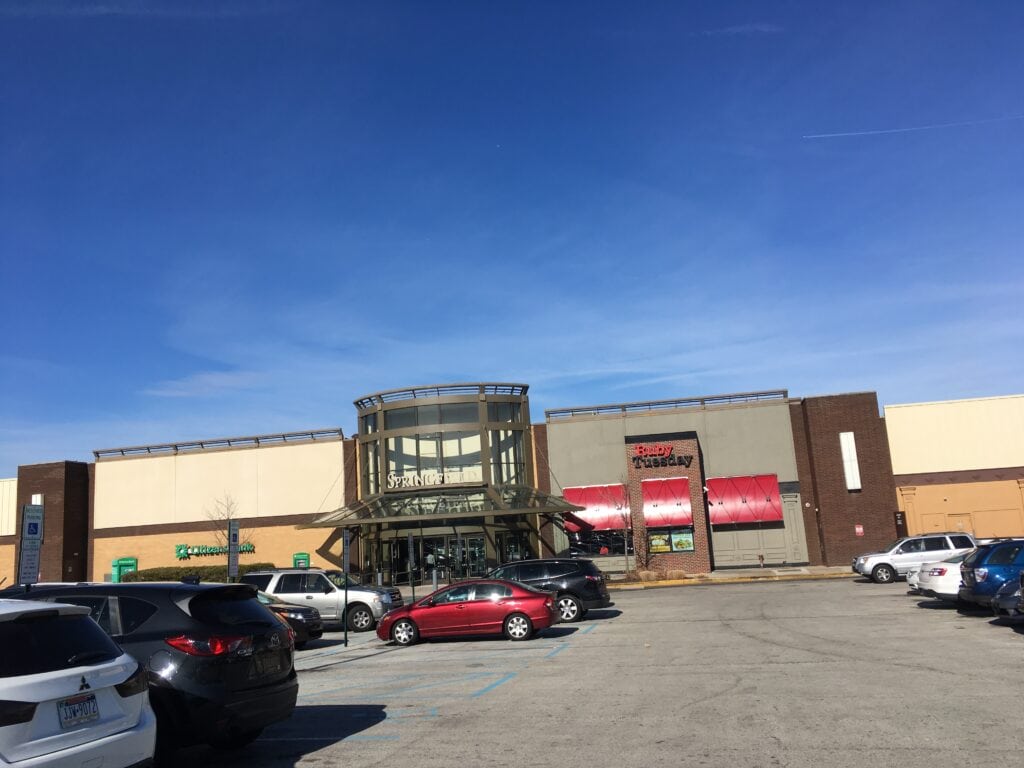
A violent shock tests the new center
On October 30, 1985, Springfield Mall turned from a weekday shopping stop into the site of a mass shooting.
A 25-year-old woman entered with a semiautomatic rifle and began firing into the crowds near the main concourse.
Three people were killed and seven others wounded before she was subdued by bystanders who forced her to the floor and took the weapon.
Police arrived within minutes and locked down the entrances.
Ambulances lined the parking lanes built for weekend shoppers, their sirens echoing across the mall's asphalt lots.
Reporters and residents gathered behind barricades as investigators moved through the interior.
Every shop closed for the day while technicians mapped bullet holes and recovered spent shells from the terrazzo floors.
The next morning, the doors reopened under a heavier security presence.
Storefront glass was replaced, displays restored, and the lights came on again across the retail corridors.
Business resumed under caution but without structural change. The building itself remained untouched.
By year's end, Springfield Mall was operating on regular hours, the anchor stores open and stocked.
The shooting remained part of the site's public record, marking the first major crisis in the mall's history.
Anchor churn reshapes the lineup
In 1986, the department store signs changed.
Bamberger's, one of the mall's original anchors, was absorbed into Macy's as part of a regional conversion.
Workers lifted new red letters into place above the entrances while sales floors kept operating.
The transformation was corporate, not structural; the same escalators carried shoppers between levels as the new brand took hold.
Ten years later, a second switch followed. In 1995, John Wanamaker closed after more than two decades in the mall.
Within weeks, the same building reopened as Hecht's, another May Department Stores division.
Staff rehung merchandise and swapped signage, but kept the layout and departments intact.
The change marked a national trend of consolidations that reached deep into local retail chains.
By 1997, Hecht's was gone too. May folded that banner into Strawbridge's, its Philadelphia-based division.
Crews changed the storefront lettering and updated interior displays, giving the store a familiar regional identity again.
Shoppers returned to aisles that looked much as they had before, only under a new name.
By the end of the 1990s, Springfield Mall's two anchors were Macy's and Strawbridge's.
The rest of the complex stayed constant: a single concourse lined with chain stores, bright lighting, and the steady rhythm of local foot traffic.
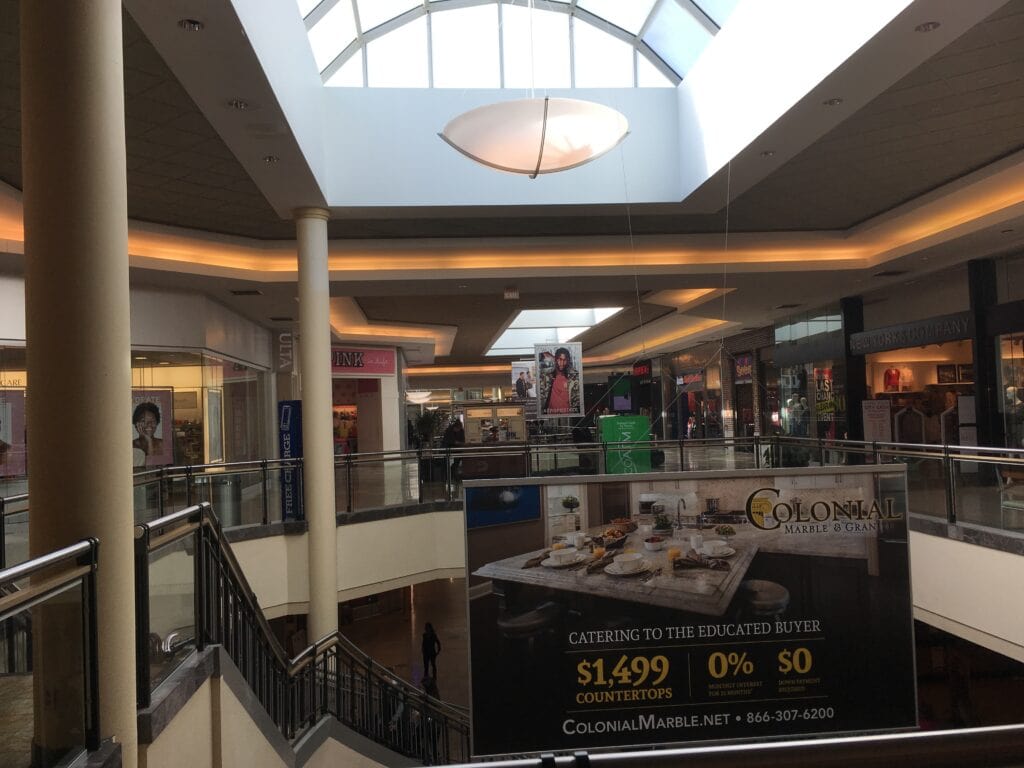
Ownership trade and a turning point
In November 2005, the mall changed hands for the first time since it opened.
Pennsylvania Real Estate Investment Trust and Kravco Simon formed a joint venture to buy Springfield Mall from Springfield Associates LP.
The transaction was valued at about $103.5 million.
PREIT took management duties while both partners shared ownership equally.
The new management evaluated leasing plans and capital needs without changing the building's footprint.
All existing tenants, including the two anchors, continued to operate during the transition.
The property's daily operations, maintenance staff, and marketing functions moved under PREIT's oversight.
A year later, another anchor shift tested the new ownership.
Strawbridge's closed in 2006 after its corporate parent merged with the company that owned Macy's, eliminating duplicate stores across the region.
The closing left one half of Springfield Mall dark for the first time.
Vacancy signs went up while PREIT sought a new tenant for the box.
For several months, construction plans were reviewed, but no immediate replacement moved in.
The mall remained open, operating with a single anchor while the empty space waited for redevelopment.
Demolition and rebuild for a new anchor
By 2008, the dark Strawbridge's anchor had become an empty shell. PREIT sold the parcel to Target that year, clearing the way for full redevelopment.
Construction fencing went up as crews started dismantling the former department store, hauling out concrete and steel while the rest of Springfield Mall stayed open behind temporary barriers.
The plan called for a complete rebuild rather than renovation.
Target constructed a two-level, 125,000-square-foot store designed to connect directly to both the parking lot and the enclosed concourse.
Through 2008 and 2009, workers rebuilt much of the structure, adding glass storefronts and repaving the roads that bordered it to meet the new design.
It was the first major change to its structure since it first opened in 1974.
Target opened on October 11, 2009.
Shoppers lined up outside the new entrances, and by afternoon, the parking lot was full again.
The store brought a new type of merchandise mix to the property and restored two-anchor symmetry after a three-year gap.
By winter, Springfield Mall was fully leased once more, with foot traffic returning to the rebuilt end that had stood quiet since Strawbridge's closed.
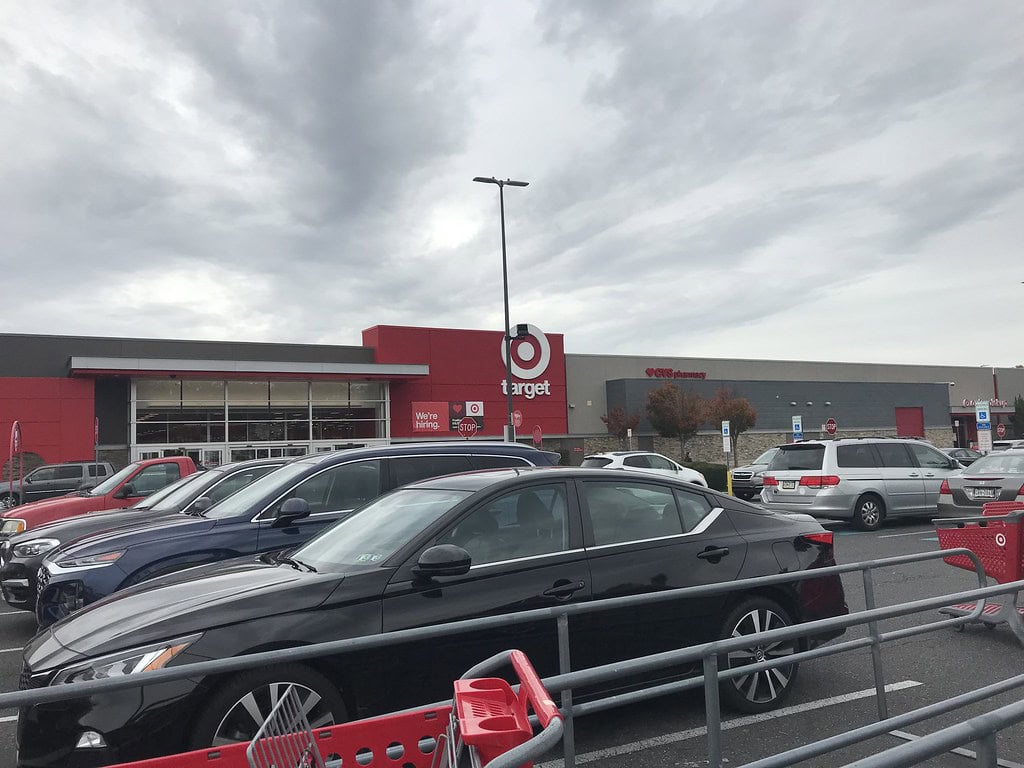
Operations and tenant mix settle in
After 2009, Springfield Mall moved into a period of stability.
PREIT managed the property while Macy's and Target kept the anchors active.
Inline stores filled in around them with a mix of national and regional tenants, including clothing chains, phone retailers, and quick-service restaurants.
Occupancy stayed consistent through regular lease renewals.
The dining lineup shifted slowly.
Sbarro and Auntie Anne's held steady near the central food area, joined later by Ruby's Cajun and other smaller eateries.
Kiosks rotated through the concourse, and seasonal tenants occupied short-term spaces during holidays.
The structure itself remained the same: two levels of retail linked by escalators and bright skylights above the central walkway.
Transit continued to serve the property directly.
The SEPTA Route 101 light rail and several bus lines stopped at Springfield Mall, providing daily access for employees and shoppers.
Parking stayed ample, designed around the same wide lots laid out in the 1970s.
By the late 2010s, Springfield Mall was operating at a normal pace, steady in attendance and layout, with its ownership and anchor lineup unchanged.
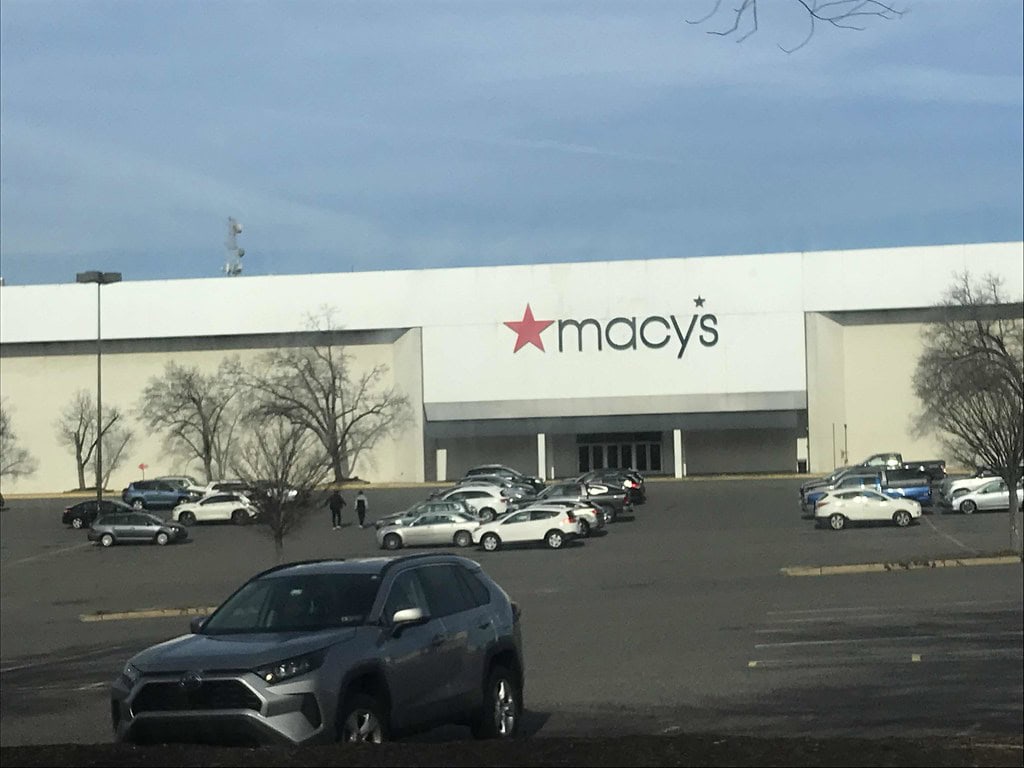
Security strains and small format changes
By 2024, PREIT was coming out of corporate restructuring.
The company exited Chapter 11 bankruptcy in April of that year, emerging with new leadership while keeping Springfield Mall under its control.
The property stayed open during the process, its stores maintaining regular hours.
That spring, Rue21 confirmed it would close its Springfield Mall location as part of a national liquidation.
Through the latter part of the year, police kept logging thefts, naming Macy's and Target in repeated reports.
The mall tightened security patrols and kept communication open with local officers handling the incidents.
In 2025, new developments again shifted attention to the mall.
On August 6, several vehicles in the parking lot were struck by projectiles, prompting a police investigation.
A month later, the former Friendly's restaurant space reopened as The Hangout Cafe, a full-service restaurant that held a soft opening on September 14.
The new tenant filled a long-vacant corner of the property and restored dine-in service to the complex.
Both anchors remain active at Springfield Mall, which continues to operate normally.
The cafe opening adds another dining option, and management keeps watch over ongoing security and tenant changes.

